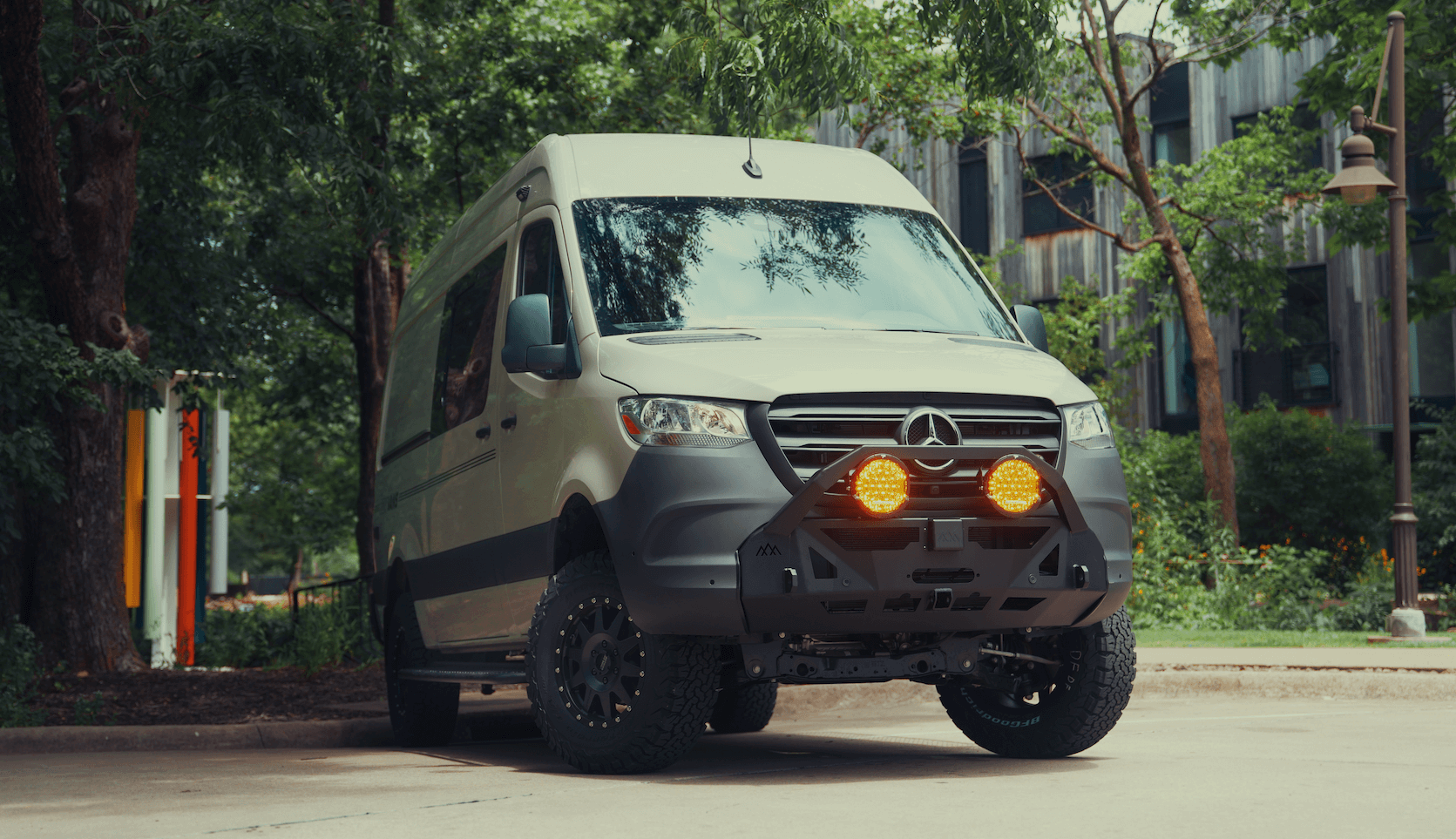Recreational Vans

Sticker shock often comes from mixing up the base van price with the full conversion cost. The base vehicle is a cargo van from Ford, Ram, or Mercedes. The conversion layers living systems, cabinetry, and tech on top. Put those together and you get the true new camper van price.
Most buyers should expect 120,000 to 220,000 dollars for a professionally built class B camper van. On the lower end, a simple build on a front wheel drive cargo van with a compact power system and minimal cabinetry might land near 120,000. On the higher end, a premium chassis with all wheel drive, lithium power, roof air conditioning, heat, and custom cabinetry can push past 200,000.
Your location, season, and supply chain all influence the final number. Popular options can add months and money. Smart spec choices keep cost in check without sacrificing the way you travel.
The base van is a large share of the new camper van price. Typical ranges for new cargo vans equipped for conversion are roughly 42,000 to 72,000 dollars before any camper gear. Ford Transit and Ram ProMaster often occupy the value side, while Mercedes Sprinter generally commands more due to its diesel option and brand premium. All wheel drive or a diesel engine adds meaningful cost. Extended wheelbase and high roof also increase price, but they add real interior utility.
Conversion pricing hinges on the systems you need for your routes and seasons. A modest setup with insulation, a bed, basic storage, a compact water kit, and a small electrical system can add 35,000 to 60,000 dollars. Step up to a lithium battery bank with 400 to 800 amp hours, a 2000 to 3000 watt inverter, roof solar, a secondary alternator, and a shore power charger, and the electrical alone can be 12,000 to 25,000 dollars. Add a roof air conditioner, diesel or gas heat, a galley with induction cooktop, and a wet bath, and you can add 30,000 to 60,000 more. Custom cabinetry, premium materials, and acoustic treatments raise cost but improve comfort and longevity.
Build timing can affect price. When demand is high, base vans sell closer to MSRP and lead times grow. Specialty parts like roof air conditioners, auxiliary alternators, or smart floors can see backorder cycles. Locking a spec early and staying flexible on non critical options helps maintain timeline and budget.
Buying a camper van is more than the initial price. Financing, insurance, taxes, and maintenance shape the monthly picture. A realistic budget looks at both the day you pick it up and the years you own it.
A used camper van can save money up front, but factor the cost to correct unknown work, replace aging batteries, or update systems. A new camper van delivers a known baseline, full warranty, and current tech. The best value is the one that aligns with how and where you will travel.
Spend on safety, electrical reliability, heating and cooling suited to your climate, and a layout that fits your crew. Save by skipping duplicate gear, excess lighting, or unnecessary gadgets. Let your first six months of travel shape future add ons.
Ask for an itemized out the door price that includes destination, documentation, taxes, and any mandated equipment. Clarify warranty coverage for both the chassis and the conversion. Confirm lead times on long supply items before finalizing your build sheet.
If you want expert guidance that respects your budget and travel style, OZK Customs builds purpose driven vans with clear pricing and clean handoffs. Explore our core options on Recreational vans, see what a fully tailored project looks like on Custom build van, or start with a finance friendly platform on Mainstream vans. Our Fayetteville Arkansas location makes pickup easy, and our team will walk you through every switch before you roll out.
Ready to get specific about your new camper van price, timeline, and must haves. Share your routes, seasons, and passenger count, and we will map a spec that hits the sweet spot between cost and comfort.
Tell us your budget and goals. We will propose a smart, serviceable build that feels great on day one and holds value for the long road ahead.
Ready to turn numbers into a plan you can drive? Tell us your travel goals, timeline, and budget. OZK Customs will spec a build that fits your spend, avoids waste, and delivers the comfort you want. Start your build conversation today.
ADDRESS:
6159 E Huntsville Rd, Fayetteville, AR 72701
PHONE:
(479) 326-9200
EMAIL:
info@ozkvans.com